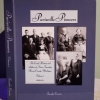This fall semester, for the first time in 78 years, there will be no Polish language taught at Wayne State University. The administration just decided to cancel the Polish Elementary course (Polish 1010) for the 2025 fall semester, even with eight students enrolled in it.



In the photos: Aneta Łuziński at the Polish and Ukrainian egg decorating workshop at WSU, the WSU Manoogian Hall where the languages, including Polish, are taught, and three members of the WSU Polish Culture Club, during the annual Club’s Wigilia in 2024.
Why was the course cancelled?
Most likely “the decision process” started with the chair of the Department of the Classical of Modern Languages, Literatures and Cultures (CMLLC) where the Polish program resides.
You might think, well, eight students is a very small number. However, when compared with most of the Polish programs at American universities, eight students is what one can call a “decent enrollment”. Besides, with three weeks still left before classes start, this number could have gone up.
The course was supposed to be taught by Aneta Łuziński, a part-time instructor, who with enthusiasm and dedication has been teaching Polish language and culture at Wayne for two years now, after the full-time instructor (this writer) retired in May of 2023, after working there for close to 30 years.
Knowing how much the university pays part-timers (very little) it was not the economic calculations that precipitated this decision, but rather the lack of commitment of the university to diversity, which the university is so proud of, and to the teaching of so-called “less commonly taught languages” (Polish is one of them) which the CMLLC department expressed on many occasions.
Addressing the first issue, the money
The lowest cost of one credit hour at WSU according to what I googled, is $567.27 per credit hour, which multiplied by four (Polish 1010 is a four-hour-credit course) gives us $2269.08. Now when we multiply is by 8 (the number of students enrolled) we get $18,152.64, of which if I remember correctly, less than one third would be spent on the instructor’s compensation.
In addition, the same instructor has been teaching the Survey of Polish Culture course (POL 2170), an online course, which consistently gets 30 plus students enrolled in it. Let’s do the math here: $567.27 times three (this is a three-credit-hour course) times 30 gives us $51,054.30. Out of which something like one tenth would go to the instructor teaching it. Currently this course is not threatened with being cancelled, but I am mentioning it, as – from the point of view of generating revenue – one could think, that that course could help to “carry” financially the less enrolled course, and the Polish program.
By the way, this is just low-balling the revenue the university would get from the Polish courses. I made the calculations using the freshman cost per credit. Students more advanced in their studies pay more and many students in the Polish Culture course are juniors and seniors.
No matter how high the university overhead cost might be, it seems to me that running Polish the way the university has done it during the last two years was clearly profitable for the university.
So, if not the expense, then what made the university decide to cancel the Polish language course in the fall?


Lack of commitment
And here we get to the lack of commitment. Despite repeating over and over that the University supports Slavic Studies and Polish, the facts say otherwise.
It looks like the administration does not want to be bothered with a small program. After all, students, who need to fulfill the foreign language requirement, may as well learn a different language, plenty are still offered (and increase their enrolments).
During my fight for Polish (and yes, it was a fight) in 2022-2023, first for the Slavic Major, then for the position of a full-time instructor in Polish, who was supposed to be paid jointly by NAWA (Narodowa Agencja Wymiany Akademickiej from Poland), and the Kosciuszko Foundation, I learned about this lack of commitment the hard way.
Some of our readers might remember the 2024 petition drive organized by the WSU Polish Club addressed to the University and signed by over 1000 people, asking the University to reconsider their decision and accept the lectureship in Polish, which was supposed to be jointly sponsored by the NAWA and the Kosciuszko Foundation. Both institutions, after a few month-long negotiations with WSU, in which initially WSU showed a lot of interest, were ready to open such lectureship.
Also, letters on the same matter sent on the behalf of the Polish American community to the WSU administration.
All of this fell on deaf ears.
There was no commitment. Period.
Universities are now run like corporations, and what is important to them – “the holy grail of corporate thinking” – is ROI, i.e. “return on investment”. So even if running a Polish lectureship would not cost them much, even if they would make money from what to them is a small program, which I demonstrated earlier that they would, in their opinion ROI would not be good enough.
Case closed.
It is both sad and angering. This is Wayne STATE University, still to some degree supported by the Michigan taxpayers (i.e. the university’s “stakeholders”), whose mission – as we read on the WSU web page is: “(…) to create and advance knowledge, prepare a diverse student body to thrive, and positively impact local and global communities. Our Warriors engage in, with and for our community to create change and drive the future in Detroit and beyond.”
Obviously, the university does not recognize the need of the Polish American community, or other students for this matter, to learn or advance their knowledge of Polish, as a part of this mission.
Important and possibly dangerous implications of cancelling Polish 1010
During last two years the university offered the first semester of Polish in the fall, followed by the second semester in the winter. This allowed students to full fill their two semesters of the foreign language requirement through taking Polish.
Once a course is cancelled, it is usually more difficult to get it going the next year (or the next semester), and I am afraid soon Polish language instruction might disappear from the WSU curriculum. Well, it might stay on the books for a while like Ukrainian or Armenian have, but the chance to be offered and taught again drastically diminishes.
Therefore, cancelling Polish 1010 for this fall semester is a huge loss with very serious possible consequences.









